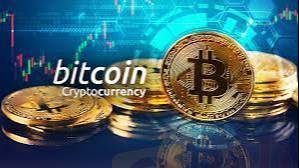
2025-02-06 19:51
IndustriaThe Role of Education in Economic Development
#firstdealofthenewyearastylz
Education plays a vital role in economic development, serving as a key driver of economic growth, poverty reduction, and improved living standards. Here are some ways education contributes to economic development:
Human Capital Development
1. *Increased productivity*: Educated workers are more productive, efficient, and innovative.
2. *Skilled workforce*: Education provides the skills and knowledge required for various industries and occupations.
3. *Entrepreneurship*: Education fosters entrepreneurship, leading to the creation of new businesses and jobs.
Economic Growth
1. *Higher earning potential*: Educated individuals earn higher incomes, contributing to increased economic output.
2. *Increased economic mobility*: Education helps individuals move up the economic ladder, reducing poverty and income inequality.
3. *GDP growth*: Education is positively correlated with GDP growth, as educated workers contribute to increased productivity and innovation.
Poverty Reduction
1. *Reduced poverty rates*: Education is a key factor in reducing poverty rates, as educated individuals are more likely to secure better-paying jobs.
2. *Improved living standards*: Education leads to improved living standards, as educated individuals are more likely to have access to better healthcare, housing, and nutrition.
Social Benefits
1. *Improved health outcomes*: Education is linked to improved health outcomes, as educated individuals are more likely to make informed health decisions.
2. *Reduced crime rates*: Education is associated with reduced crime rates, as educated individuals are less likely to engage in criminal activity.
3. *Increased civic engagement*: Education fosters civic engagement, leading to increased participation in democratic processes and community development.
Challenges and Solutions
1. *Access to education*: Ensure equal access to quality education for all, regardless of socioeconomic background or location.
2. *Quality of education*: Improve the quality of education by investing in teacher training, infrastructure, and curriculum development.
3. *Relevance of education*: Align education with labor market needs, ensuring that graduates possess the skills required by employers.
In conclusion, education is a critical driver of economic development, contributing to increased productivity, economic growth, poverty reduction, and improved living standards. Investing in education is essential for building a skilled and competitive workforce, promoting economic growth, and reducing poverty and inequality.
Me gusta 0

bolaji1913
Courtiers
Contenido delicado
Industria
Trabajo de WikiFX
Industria
Trabajo a tiempo parcial
Industria
gana sin invertir solo por usar una app
Industria
Evento de subsidio en México
Industria
gana 100 dólares con un minimo de inversión de 4 dólares
Industria
Evento de subsidio de Colombia
Categoría del foro

Plataforma

Exposición

Agente

Contratación

EA

Industria

Mercado

Índice
The Role of Education in Economic Development
 Hong Kong | 2025-02-06 19:51
Hong Kong | 2025-02-06 19:51
#firstdealofthenewyearastylz
Education plays a vital role in economic development, serving as a key driver of economic growth, poverty reduction, and improved living standards. Here are some ways education contributes to economic development:
Human Capital Development
1. *Increased productivity*: Educated workers are more productive, efficient, and innovative.
2. *Skilled workforce*: Education provides the skills and knowledge required for various industries and occupations.
3. *Entrepreneurship*: Education fosters entrepreneurship, leading to the creation of new businesses and jobs.
Economic Growth
1. *Higher earning potential*: Educated individuals earn higher incomes, contributing to increased economic output.
2. *Increased economic mobility*: Education helps individuals move up the economic ladder, reducing poverty and income inequality.
3. *GDP growth*: Education is positively correlated with GDP growth, as educated workers contribute to increased productivity and innovation.
Poverty Reduction
1. *Reduced poverty rates*: Education is a key factor in reducing poverty rates, as educated individuals are more likely to secure better-paying jobs.
2. *Improved living standards*: Education leads to improved living standards, as educated individuals are more likely to have access to better healthcare, housing, and nutrition.
Social Benefits
1. *Improved health outcomes*: Education is linked to improved health outcomes, as educated individuals are more likely to make informed health decisions.
2. *Reduced crime rates*: Education is associated with reduced crime rates, as educated individuals are less likely to engage in criminal activity.
3. *Increased civic engagement*: Education fosters civic engagement, leading to increased participation in democratic processes and community development.
Challenges and Solutions
1. *Access to education*: Ensure equal access to quality education for all, regardless of socioeconomic background or location.
2. *Quality of education*: Improve the quality of education by investing in teacher training, infrastructure, and curriculum development.
3. *Relevance of education*: Align education with labor market needs, ensuring that graduates possess the skills required by employers.
In conclusion, education is a critical driver of economic development, contributing to increased productivity, economic growth, poverty reduction, and improved living standards. Investing in education is essential for building a skilled and competitive workforce, promoting economic growth, and reducing poverty and inequality.
Me gusta 0
Yo también quiero comentar.
Enviar
0Comentarios

No hay comentarios todavía. Haz el primero.

Enviar
No hay comentarios todavía. Haz el primero.